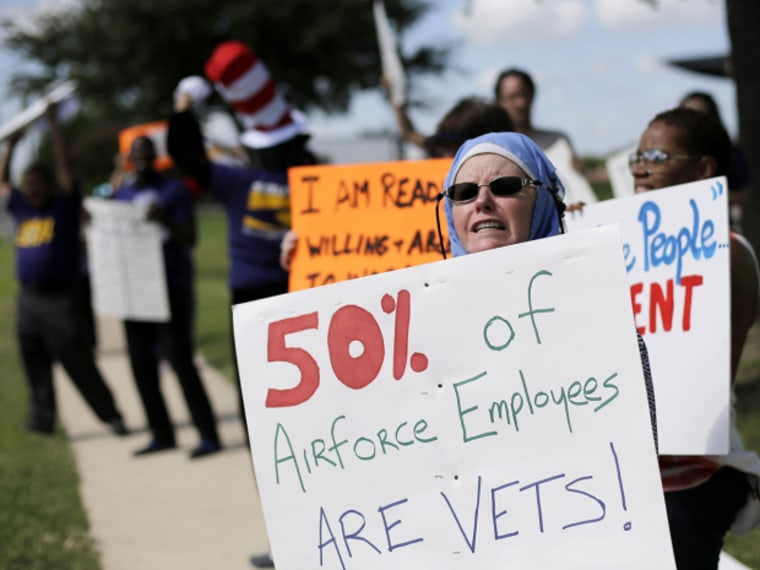The past few months have been dark times for the North Texas Food Bank (NTFB) in Dallas, Texas. But since the advent of the government shutdown, things have become significantly worse. The Department of Agriculture is a major supplier for the NTFB, and its closure means that the food bank may lose as many as 305,000 meals intended for low-income Texans.
Because of the shutdown, the USDA has had to cancel ten truckload deliveries of food to the NTFB, representing about one quarter of those meals. An additional 36 loads are “in limbo” according to NTFB President Jan Pruitt. Widespread USDA furloughs have made it difficult to even determine the status of those deliveries.
“They're just not answering questions right now,” said Pruitt. “They're saying, 'We can't guarantee that you'll get the truckloads.'“
Texas' junior senator, Republican Ted Cruz, is widely credited with leading the anti-Obamacare strategy which resulted in a government shutdown. Now the poor of his state is feeling the consequences as much as any other—perhaps more so. At last count, Texas had a higher percentage of uninsured people than any other state, and ranked eighth in poverty. Nearly one-fifth of the state is “food insecure” according to the non-profit Feeding America, meaning they are unable to feed themselves adequately. A prolonged shutdown has the potential to make matters even worse.
“I think Texas is different just because there are so many people,” said Pruitt. The Lone Star state is the third-most populous state in the country, and also has the third-highest concentration of workers employed by the federal government. When the shutdown first began, some 11,500 workers in the Austin area alone were sent out on furlough, though at least some of them are likely to be called back as the Defense Department recalls most of its furloughed workforce.
Perhaps the Texans most vulnerable to the harmful effects of the shutdown are those 19% said to already be suffering from food insecurity. While Texas' Department of State Health Services says that it can draw on reserve funds in order to continue paying out WIC (Special Supplemental Nutrition Program for Women, Infants and Children) benefits, the program may be under threat if the shutdown drags into November. The same holds true for food stamps.
The North Texas Food Bank is already struggling to deal with widespread hunger in the state, because it never returned to pre-recession levels after the 2008 financial collapse, said Pruitt.
“The numbers have not let off at all,” she said. “The gas pedal's down and there's no release. And so we're providing food at the 2008 level, which has created tremendous stress on our food bank. And then to have these other factors come in is what's making it very hard this time.”
